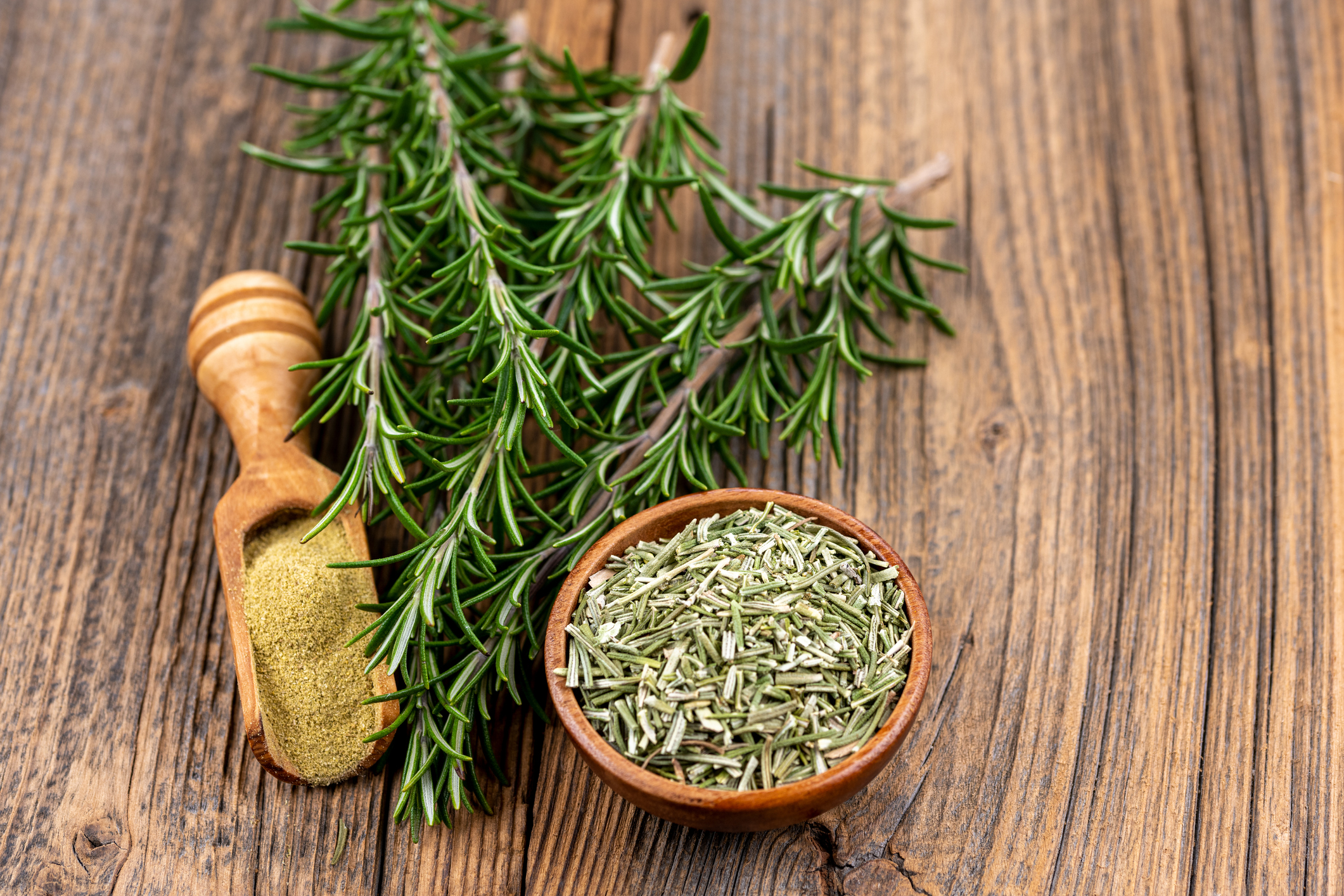

Rosemary is one of the most fragrant herbs.
We love its aroma, both fresh and as an essential oil — but it’s also a culinary herb that works well in just about any dish, improving the flavor of both vegetables and meats.
It’s not short on health benefits either…
It’s been reported to kick inflammation to the curb and sock it to blood sugar levels — contributors to metabolic syndrome.
Rosemary’s been used for its memory-protecting powers since ancient times. And modern research shows the herb can indeed work wonders for enhancing memory.
But the latest research, co-led by scientists at Scripps Research, focused on a polyphenolic compound found in rosemary known as carnosic acid and its impact on the virus behind COVID-19.
A prescription for rosemary?
The team tested the ability of SARS-CoV-2, the virus that causes Covid-19, to infect cells and what they found was that carnosic acid acts like a suit of armor keeping it from punching through where it can wreak its havoc.
They say that their results showed that carnosic acid can directly block SARS-CoV-2’s ability to infect cells, by modifying the ACE2 receptor, making it impregnable to the virus.
And if offers progressively greater infection-blocking activity at higher doses.
In other words, getting more of the compound gives you more protection.
The researchers were particularly thrilled by this discovery because not only is it safe to have in higher quantities, it’s converted to its active form by the very thing it’s going after — the inflammation and oxidation found at the infection site.
“Carnosic acid represents a ‘pathologically activated therapeutic’ in preclinical models of disease — inactive and innocuous in its normal state, but converted to an active form where it needs to be active,” says study senior author Stuart Lipton, MD, PhD.
Blocking the inflammation that makes COVID worse
And this isn’t the first time that rosemary has been in the spotlight for its health properties.
Back in 2016, the researchers found that carnosic acid was capable of activating an anti-inflammatory, antioxidant signaling cascade that reduces Alzheimer’s-like signs featuring brain inflammation.
So that got the Scripps researchers wondering whether, in addition to halting Covid-19 before it enters cells, the compound might also be capable of defeating the inflammation that can leave Covid patients in respiratory distress, or worse.
And once again, their research paid off.
They found that carnosic acid exhibits an anti-inflammatory effect on the immune cells that drive inflammation in COVID-19, which could help patients during their initial bout with the virus, as well as those suffering from long Covid.
“We think that carnosic acid, or some optimized derivative, is worth investigating as a potentially cheap, safe, and effective treatment for COVID-19 and some other inflammation-related disorders,” says Lipton.
It’s easy to incorporate rosemary into your diet. It’s an herb that’s great cooked in vegetables or meat (like this tasty chicken dish). One of my favorite ways to enjoy it is crushed and sprinkled atop garlic bread.
Sources:
Compound in the herb rosemary may be useful against COVID-19 and other inflammatory diseases – Scripps Research
